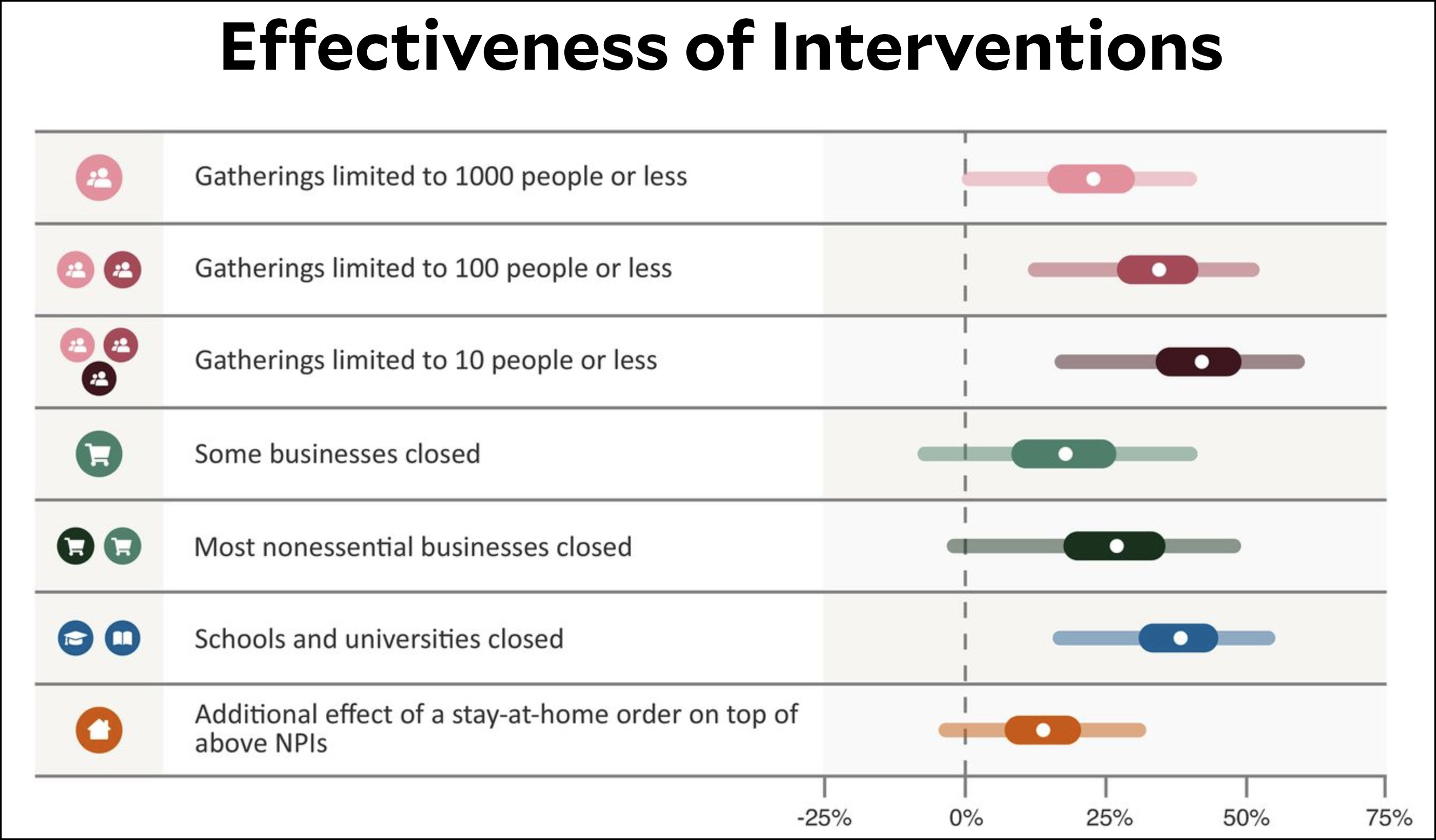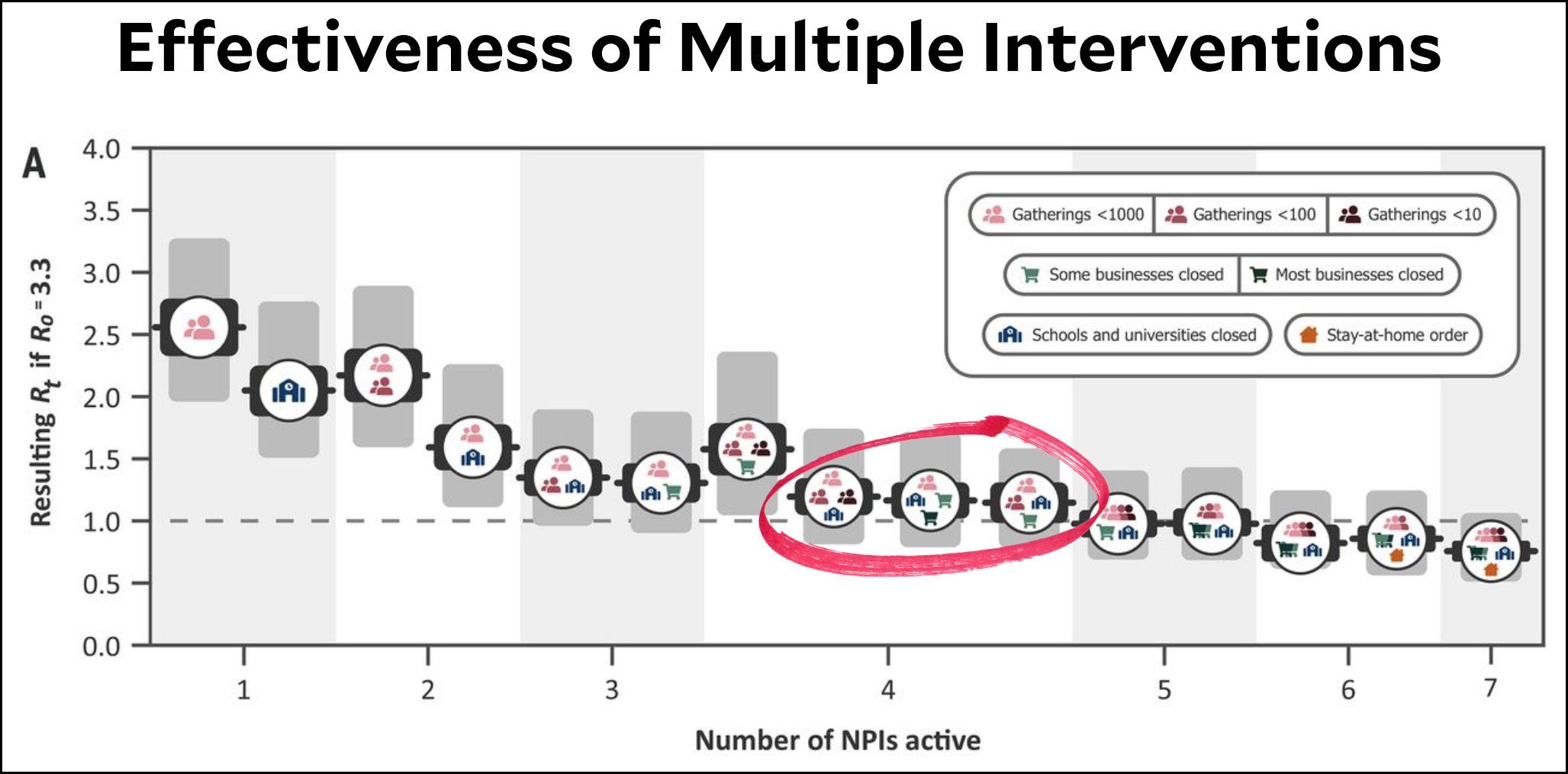A team of researchers led by a group from Oxford University has published an interesting new study about the effectiveness of various interventions in the fight against COVID-19. Here are their basic results:

Unlike some previous studies, this one finds that closing schools and universities can be quite effective—along with very strict limits on gatherings. Stay-at-home orders, conversely, have very little effect.
Unfortunately, the study methodology was unable to distinguish between different kinds of school closure (elementary vs. high school vs. university), which severely limits its usefulness. Existing research already suggests that there may be a big difference between opening primary schools vs., say, opening high schools, where kids are far more likely to break quarantine and become infected. Nor does this study account for the impact that school closures have on learning for young children, which is already thought to be considerable. It’s strictly about the overall impact on disease transmission.
This is a big drawback. At the same time, if you simply accept this study as one more data point among many, it has some value. For one thing, the authors are able to estimate the effectiveness of multiple interventions:

This has a chance of being useful to policymakers. Take a look at the three interventions that I’ve circled. All three include a ban on gatherings of over a thousand people plus a shutdown of schools. Option 1 adds a ban on gatherings over ten people. Option 2 closes nearly all businesses. Option 3 bans gatherings over 100 people and closes some businesses. All three are predicted to have about the same effect. Which do you choose?
Obviously I’m oversimplifying here, especially since this is just one study among many. But this is the kind of information we need in order to deal with future pandemics most effectively. After all, you didn’t think that COVID-19 would be the last pandemic ever, did you?


















